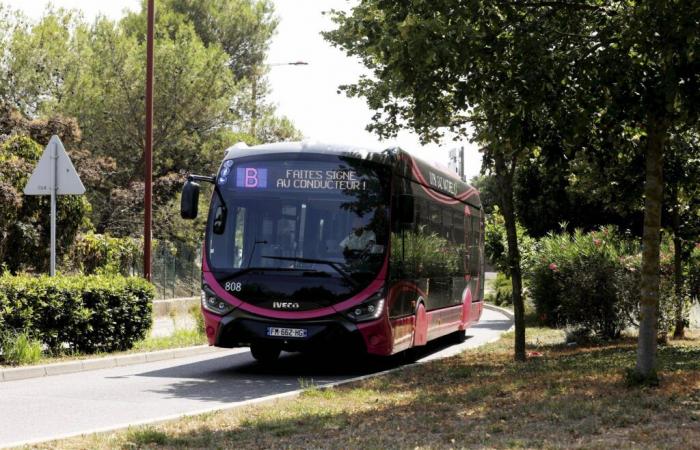To promote its service, Envibus, the transport network of the Sophia Antipolis urban community (Casa), made travel free on Saturday December 21 to all its users. Total cost of the operation: 5,000 euros.
At the same time, since the bus-tram came into service, lines A and B have been free, provided you take out a shuttle pass to be validated each time you get on. “Perhaps we will one day move towards total free access, but that is not the current objective. We prefer to keep our own funding and attractive prices”replies the Agglomeration. Namely: a free senior subscription and a junior pass for 60 euros per year. “That is, five euros per month or one euro per week. It’s not free but almost”adds the Casa.
The highest Envibus subscription costs 90 euros per year, normally reimbursed 50% by a private company and 75% for a community. For example, it costs 375 euros at PalmBus (the network of the Cannes Pays de Lérins conurbation community) and 250 euros at Sillages (in the Pays de Grasse conurbation community).
Not the priority criterion for travelers
The three intercommunal authorities interviewed confirm this: the choice of free, partial or total, is above all political. In the west of the department, none seems to want to move towards this strategy. CAPL is putting forward a policy of decarbonization (electrification of buses, use of a French biofuel, local production of hydrogen in 2025) and progressive reinforcement of its lines 1,2, A, B, 21 and 22 during 2025. “This strategy is supported by an increase of 27% in the number of trips and 111% in the number of subscribers compared to 2014”she illustrates.
“It’s been more than ten years since we last changed the pricing. Today, apart from the Casa, all our neighbors have increased the price of the single ticket”adds the CAPG. She also argues that she has to face the increase in fuel prices, the higher price of electric buses and the investments made in the installation of charging stations. Without forgetting the salary of the staff.
-Budgets between 20 and 70 million euros
All these expenses are calculated in a budget specific to travel (public transport, on demand, school, cycling, carpooling, etc.). It is supplemented by revenue from ticket sales, the own contribution of intermunicipalities and by the mobility payment. It is a tax paid by companies with more than eleven employees, at a variable rate. To the west of the department, the three intercommunal authorities apply a rate of 1.75% (1). This tax pays 65 to 70% of the CAPG’s annual budget of 20 million euros and almost 95% of the 45.5 million dedicated to Casa travel. The rest comes from revenue from ticketing and subscriptions. The same goes for CAPL, whose mobility payment covers around 60% of operating revenues from a budget of 70.2 million euros.
In this context, it is impossible for our three intermunicipalities to do without revenue linked to ticketing. “They cover 10.5% of our expenses. If we remove them, we risk degrading the network”adds the CAPG. However, according to intermunicipalities, travelers prefer a provided and secure offer, rather than free.
(1) For intermunicipalities with more than 100,000 inhabitants, the mobility payment is capped at 2%.






